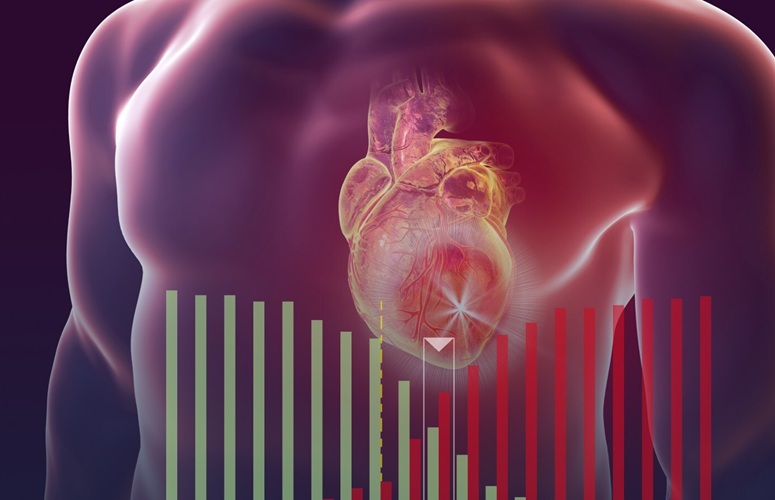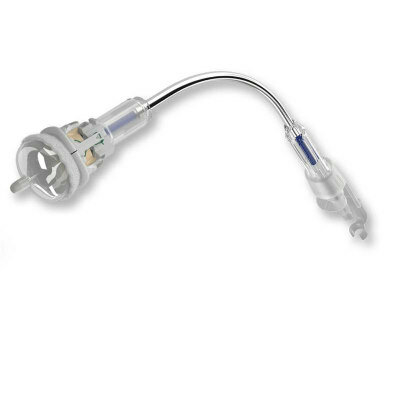Portable Biosensor Platform to Reduce Hospital-Acquired Infections
|
By HospiMedica International staff writers Posted on 11 Oct 2024 |

Approximately 4 million patients in the European Union acquire healthcare-associated infections (HAIs) or nosocomial infections each year, with around 37,000 deaths directly resulting from these infections, making them a significant cause of mortality. Microorganisms contracted in hospitals are frequently resistant to many common antibiotics. By 2050, the number of deaths caused by drug-resistant infections is projected to rise to 10 million worldwide, posing a serious public health challenge. Early detection of nosocomial infections and effective disinfection of hospitals and healthcare facilities are crucial to reducing these numbers, but current methods have limitations. Researchers are now developing a bio-based disinfectant to eliminate key pathogens responsible for HAIs, integrated into a new, flexible, and portable biosensor platform.
The biosensor platform being developed by a collaborative team of researchers, including from AIMPLAS - Plastics Technology Centre (Valencia, Spain;) under the NOSOSENS Project, uses printed electrochemical sensors for rapid, selective detection of Staphylococcus aureus, a methicillin-resistant bacterium responsible for 11% of nosocomial infections. The standard method currently used in hospitals to prevent these infections involves pathogen detection through cell culture microscopy, with results typically available in four to five days. The NOSOSENS portable electrochemical biosensor platform, however, offers immediate, specific detection and quantification of bacteria from the Staphylococcus aureus family. The system will also feature data monitoring, management, and alert capabilities.
A key challenge with current cleaning products is that pathogens' antimicrobial resistance renders many disinfectants less effective. Stronger disinfectants, such as peracetic acid, are often required, but they can cause long-term surface damage and are unsuitable for daily use in healthcare settings. The NOSOSENS solution, however, is both highly biocidal and bio-based, making it biodegradable, less aggressive, and more environmentally friendly. The innovations will be tested using a portable, user-friendly system for early bacterial detection by healthcare personnel, alongside an effective and sustainable pathogen elimination system for surgical tools and surfaces. By integrating with the sensor platform, this system will optimize disinfection processes, improving safety against hospital-acquired infections. It will also enable rapid tracing, control, and elimination of surface colonization, reducing risks associated with hospital stays.
Related Links:
AIMPLAS
Latest Patient Care News
- First-Of-Its-Kind Portable Germicidal Light Technology Disinfects High-Touch Clinical Surfaces in Seconds
- Surgical Capacity Optimization Solution Helps Hospitals Boost OR Utilization

- Game-Changing Innovation in Surgical Instrument Sterilization Significantly Improves OR Throughput
- Next Gen ICU Bed to Help Address Complex Critical Care Needs
- Groundbreaking AI-Powered UV-C Disinfection Technology Redefines Infection Control Landscape
- Clean Hospitals Can Reduce Antibiotic Resistance, Save Lives
- Smart Hospital Beds Improve Accuracy of Medical Diagnosis
- New Fast Endoscope Drying System Improves Productivity and Traceability
- World’s First Automated Endoscope Cleaner Fights Antimicrobial Resistance
- Portable High-Capacity Digital Stretcher Scales Provide Precision Weighing for Patients in ER
- Portable Clinical Scale with Remote Indicator Allows for Flexible Patient Weighing Use
- Innovative and Highly Customizable Medical Carts Offer Unlimited Configuration Possibilities
- Biomolecular Wound Healing Film Adheres to Sensitive Tissue and Releases Active Ingredients
- Wearable Health Tech Could Measure Gases Released From Skin to Monitor Metabolic Diseases
- Wearable Cardioverter Defibrillator System Protects Patients at Risk of Sudden Cardiac Arrest
- World's First AI-Ready Infrasound Stethoscope Listens to Bodily Sounds Not Audible to Human Ear
Channels
Artificial Intelligence
view channel
Innovative Risk Score Predicts Heart Attack or Stroke in Kidney Transplant Candidates
Heart researchers have utilized an innovative risk assessment score to accurately predict whether patients being evaluated for kidney transplants are at risk for future major cardiac events, such as a... Read more
AI Algorithm Detects Early-Stage Metabolic-Associated Steatotic Liver Disease Using EHRs
Liver disease, which is treatable when detected early, often goes unnoticed until it reaches advanced stages. Metabolic-associated steatotic liver disease (MASLD), the most prevalent form of liver disease,... Read moreCritical Care
view channel
Starfish-Inspired Wearable Tech Enables Smarter Heart Monitoring
Physical movement can make it challenging for current wearable devices to accurately track heart activity. Now, a starfish’s five-arm shape has helped resolve this issue. Inspired by the starfish's ability... Read more
AI Eye Scans Could Help Identify Heart Disease and Stroke Risk
New research has explored the advantages of utilizing artificial intelligence (AI) retinal imaging for screening cardiovascular diseases in general practice (GP) clinics and highlighted areas where improvements... Read more
Digital Heart Twin Improves Diagnosis and Treatment of Cardiac Arrhythmias
Millions of individuals around the globe suffer from cardiac arrhythmias. Traditionally, electrocardiography (ECG) has been used to detect premature ventricular contractions (PVCs), one of the most common... Read more
First-Of-Its-Kind AI-Powered Probability Scoring System Assesses Heart Failure with Preserved Ejection Fraction
Heart failure with preserved ejection fraction (HFpEF) is one of the most difficult types of heart failure to diagnose due to the intricate interaction between various clinical and echocardiographic factors.... Read moreSurgical Techniques
view channel
New Transcatheter Valve Found Safe and Effective for Treating Aortic Regurgitation
Aortic regurgitation is a condition in which the aortic valve does not close properly, allowing blood to flow backward into the left ventricle. This results in decreased blood flow from the heart to the... Read more
Minimally Invasive Valve Repair Reduces Hospitalizations in Severe Tricuspid Regurgitation Patients
The tricuspid valve is one of the four heart valves, responsible for regulating blood flow from the right atrium (the heart's upper-right chamber) to the right ventricle (the lower-right chamber).... Read moreHealth IT
view channel
Printable Molecule-Selective Nanoparticles Enable Mass Production of Wearable Biosensors
The future of medicine is likely to focus on the personalization of healthcare—understanding exactly what an individual requires and delivering the appropriate combination of nutrients, metabolites, and... Read more
Smartwatches Could Detect Congestive Heart Failure
Diagnosing congestive heart failure (CHF) typically requires expensive and time-consuming imaging techniques like echocardiography, also known as cardiac ultrasound. Previously, detecting CHF by analyzing... Read morePoint of Care
view channel
Handheld, Sound-Based Diagnostic System Delivers Bedside Blood Test Results in An Hour
Patients who go to a doctor for a blood test often have to contend with a needle and syringe, followed by a long wait—sometimes hours or even days—for lab results. Scientists have been working hard to... Read more
Smartphone-Enabled, Paper-Based Quantitative Diagnostic Platform Transforms POC Testing
Point-of-care diagnostics are crucial for public health, offering rapid, on-site testing that enables prompt diagnosis and treatment. This is especially valuable in remote or underserved regions where... Read moreBusiness
view channel
Expanded Collaboration to Transform OR Technology Through AI and Automation
The expansion of an existing collaboration between three leading companies aims to develop artificial intelligence (AI)-driven solutions for smart operating rooms with sophisticated monitoring and automation.... Read more

















